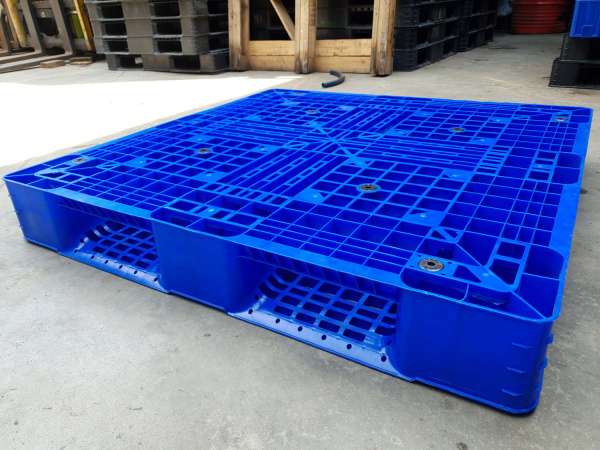Understanding the disinfection methods that apply to plastic pallets
Plastic pallets are a boon for local distributors looking to make inroads into both domestic and international markets. Their strength, stability, and flexibility make them a winning choice for businesses at home and abroad. Plastic pallets also offer a range of benefits to businesses that need to consider international quarantine.
Plain Pallets is here to get you in the know about everything to do with plastic pallets. Our pallet solutions can add untold value to your business by ways of efficiency and cost reduction. Contact us to learn more.
The dangers of untreated pallets
Timber pallets, by nature, are organic materials. Any organic material has the potential to present hazards to a foreign country by way of contamination and infestation. Pests, insects, and bacteria can take over timber pallets, while mould, mildew, and other contaminants can degrade the quality of the timber.
Sufficiently degraded timber can lead to a range of problems for logistical enterprises around the world, including:
- Infection and infestation to other pallets and goods
- Failure to meet international quarantine regulations
- Broken, damaged pallets that need to be replaced
- Higher potential for workplace injury from damaged pallets
The best way to prevent infestation and degradation of timber pallets is by treating them. One of the popular ways of treating pallets is via chemical treating, where the timber is fumigated using methyl bromide, which penetrates into the wood and kills insects before they can take up residence.
They can also be treated with heat, which is far more common than chemical treating, and what we will be expanding upon in this article.
What is heat treating?
Heat treating is a process by whereby timber pallets are treated using heat for pests and degradation using heat. Heat, usually around 55 to 60 degrees Celsius, is applied to the timber, killing off any infestations or contaminants inside.
There are several ways that heat can be applied to timber pallets, including:
- Drying, where pallets are entered into a large, oven-like kiln
- Steam, where superheated water is applied to the timber
- Microwave, where energy is applied to the timber via an electromagnetic field
- Radiofrequency heating, quite similar to microwave heating
Heat treating pallets is recommended for timber pallets of all shapes and sizes because the process penetrates far more deeply than chemical treating. In fact, pallets thicker than 20cm are not allowed to be treated with chemicals, simply because the chemicals cannot penetrate any further.
Heat treating is recommended by the International Plant Protection Convention (IPPC) — the governing body for international pallet standards.
Are plastic pallets heat treated?
The short answer is 'no'. Plastic pallets are not made of timber, and are therefore not susceptible to degradation and infestation like timber pallets. Thanks to their single-piece design, plastic pallets:
- Do not provide adequate breeding grounds for insects and pests
- Do not collect water and moisture in transit, leading to decline
- Weigh less than their timber counterparts
- Do not feature nails and screws that can pose health risks at end-of-life
- Are less susceptible to fall damage and degradation from blows
So how are plastic pallets cleaned?
Although they don't need to be heat treated, plastic pallets still need to be cleaned just as thoroughly as their wooden brethren. There are several ways that plastic pallets can be sanitised to ensure they remain clean for your staff, and up to export code.
- Wiping down plastic pallets with a rag and all-purpose cleaner will remove most surface dirt and grime.
- For caked-on dirt and grime, power washing with a gurney will do the job without endangering the structure of the pallet.
- Automated pallet washers can clean an industrial scale of pallets in a short time without needing to put all hands on deck.
Sanitising food-grade plastic pallets requires a bit more care and attention. Pallet sanitising at this level is usually undertaken by an external company, one that can advise you on how to manage sanitation at all steps of the food supply chain.
For example, non-toxic disinfectants can be applied to both plastic pallets and the vessel being used to transport them, such as a container or truck. This prevents the build-up of bacteria and microbes — an extremely important task for both food and pharmaceutical environments.
What should I choose plastic pallets?
Plastic pallets are more expensive than their timber cousins. But the benefits can outweigh the additional costs. Basically, all timber pallets for export need to be heat treated. Most plastic pallets are suitable for export without the need for treating.
Plain Pallets are the best in the business when it comes to sourcing plastic pallets. Get in touch with us now to chat about how we can save you money and improve efficiency in the future.
Must Read
Plain Pallets on 29 April 2014
How to Get Greater Mileage out of Your Pallets
Do your pallets go the distance? If not, you may be losing money through replacement costs and damaged goods. Get the most out of your pallets ...
Read morePlain Pallets on 11 March 2014
Plain Pallets Display the Future of Sustainability
Pallets are always useful. See the many ways old pallets can be reused. Who knows, maybe your next house or business will have some great pallet furniture! ...
Read more